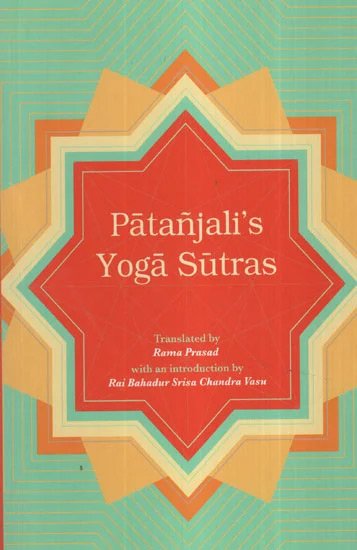Yoga-sutras (with Vyasa and Vachaspati Mishra)
by Rama Prasada | 1924 | 154,800 words | ISBN-10: 9381406863 | ISBN-13: 9789381406861
The Yoga-Sutra 1.34, English translation with Commentaries. The Yoga Sutras are an ancient collection of Sanskrit texts dating from 500 BCE dealing with Yoga and Meditation in four books. It deals with topics such as Samadhi (meditative absorption), Sadhana (Yoga practice), Vibhuti (powers or Siddhis), Kaivaly (isolation) and Moksha (liberation).
Sūtra 1.34
Sanskrit text, Unicode transliteration and English translation of Sūtra 1.34:
प्रच्छर्दनविधारणाभ्यां वा प्राणस्य ॥ १.३४ ॥
pracchardanavidhāraṇābhyāṃ vā prāṇasya || 1.34 ||
pracchardana—by the expulsion, vidhāraṇābhyām—and by the retentions. vā—optionally, prāṇasya—of breath.
34. Optionally, by the expulsion and retention of breath.
The Sankhya-pravachana commentary of Vyasa
[English translation of the 7th century commentary by Vyāsa called the Sāṅkhya-pravacana, Vyāsabhāṣya or Yogabhāṣya]
[Sanskrit text for commentary available]
Expulsion is the throwing out of the air in the lungs through the nostrils by special effort. Retention is the Prāṇāyāma, the lengthening of the duration of the stay of the air outside the lungs. Let mental steadiness be optionally cultivated by these.—34.
The Gloss of Vachaspati Mishra
[English translation of the 9th century Tattvavaiśāradī by Vācaspatimiśra]
Now then he describes the means of steadiness ‘Optionally by the expulsion and retention of breath.’ The word optionally refers to the succeeding means. The option is not given with reference to the cultivation of friendliness, &c., because they must be present along with all (the means).
Now he explains expulsion:—‘The throwing out of the air in the lungs, &c.’ “By special efforts” means such an effort as is laid down in the science of Yoga, by which the air is thrown out of the lungs slowly.
Now he describes retention:—Retention is Prāṇāyāma. It means the keeping out of the air which has been expired, lengthening the duration of its stay outside, not drawing in all at once. By thus expiring and inspiring air the body becomes light, and the mind thence attains the state of steadiness. The words ‘let it be cultivated’ have been taken from the sense of the words ‘causes mental steadiness, (sthitinibandhinī) in the next aphorism.
